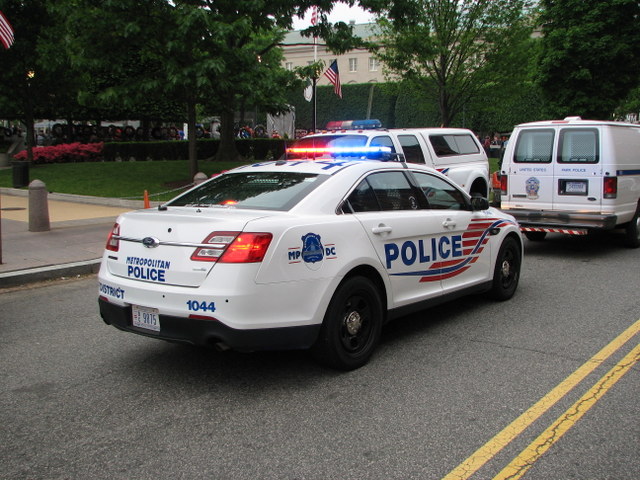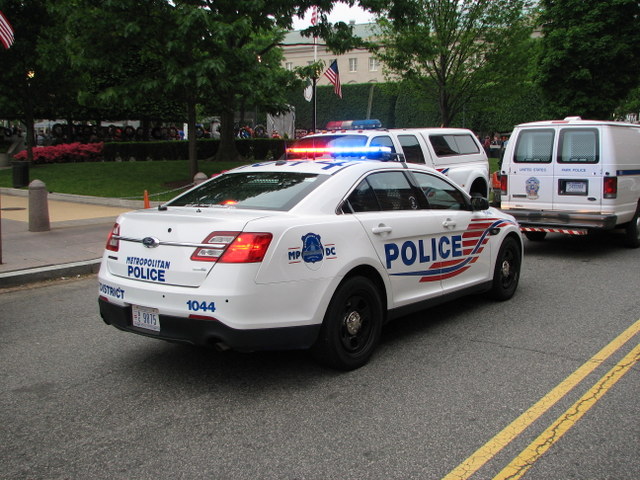[ad_1]
By Aya Elamroussi, Special to the AFRO
American Civil Liberties Union (ACLU) -DC filed a lawsuit last week against a D.C. police officer for inappropriately touching a Black man during a stop-and-frisk in Southwest, D.C. a violation of the Fourth Amendment right to be free from unreasonable searches and seizures.
“For a number of months, I was depressed. I was very depressed,” M.B. Cottingham, 39, told the AFRO.

Cottingham and about a dozen other people were gathered on a public sidewalk in the Bellevue neighborhood in Southwest, D.C. on Sept. 27, 2017, Cottingham’s birthday. He was discussing his celebration plans with his friends when two police cars pulled up alongside them. Officers hopped out of the cars and asked the group if they had weapons on them.
“We said ‘no,’ clearly, simultaneously.”
An officer singled Cottingham out of the group and searched him. A viral video showed Officer Sean Lojacono patting down Cottingham for weapons by touching his buttocks and the area around it multiple times. The video shows Cottingham complying with the officer.
But when Cottingham flinched at Lojacono’s inappropriate touching, he was handcuffed. And the touching continued in the same manner and area.
“He just stuck his finger in my crack,” Cottingham said in the September video.
Lojacono jammed his fingers between Cottingham’s buttocks, sticking his thumb in his anus, and grabbing his scrotum, all through his sweatpants, according to ACLU’s description of the incident.
The officer found a legal amount of marijuana in Cottingham’s possession. It is legal for adults 21 and over to possess up to two ounces of marijuana in Washington D.C.
The video shows at least four officers were present during the stop-and-frisk, two of whom appear to be African American. An African American officer assisted Lojacono in handcuffing Cottingham, the video showed.
At a D.C. Council hearing on June 12, Chief of Police Peter Newsham acknowledged that he saw the video.
“It looked like it was an inappropriate touching by the officer.” Newsham added that the officer had been disciplined but is still on active duty with the D.C. Metropolitan Police Department (MPD).
Following the incident, Cottingham told the AFRO that he suffered humiliation and embarrassment.
“For a minute, it took me a while to pull myself back together,” he added. “I had to break it down to my now-18-year-old son of the seriousness of a stop-and-frisk.” Cottingham also has a 7-year-old and a 4- year-old daughter.
The lawsuit comes at a critical time for the District as it attempts to fully implement the Neighborhood Engagement Achieves Results (NEAR) Act, which is aimed at reducing violence through the use of community-based public health approach.
A provision of the law requires MPD to track the number of stop-and-frisks. But since the law passed in 2016, MPD hasn’t had the adequate funding to do so consistently.
MPD’s partial data on stop and frisks from 2010-2016 showed that over 80 percent of recorded incidents involved African Americans, WAMU reported in March.
“It needs to stop,” Cottingham said. “It needs to be exposed… a lot of people think this doesn’t exist.”
But for Cottingham, it’s “definitely the norm” for police to approach him and other members of his community, he said.
MPD now requires its police officers to take a 10-hour training program, part of which is at National Museum of African American History and Culture. The goal is to teach officers the historical interactions between law enforcement and minority communities, particularly African Americans.
But Cottingham said the program is “just a field trip.”
“The African American museum is not where this stuff is happening,” he added. “It’s happening in my community. In my peers’ community. In my family’s community
“I don’t believe [the museum] has anything to offer other than the history of what everyone already knows. The slavery. The civil rights movement.”
Cottingham said that some police don’t follow their mission statement of “protect and serve” or their code of ethics.
“It almost comes off as a natural resentment towards an ethnic group of people,” he added.
D.C. law requires that an officer must “reasonably suspect” that the person being searched is carrying a concealed weapon or dangerous instrument and that a frisk is necessary to protect themselves or others.
ACLU-DC is suing Lojacono for violating Cottingham’s Fourth Amendment right to be free of unreasonable searches by government officers. The case was filed in the U.S. District Court for the District of Columbia
“Defendant Lojacono’s actions…without a warrant, probable cause, reasonable suspicion, or consent to the scope of this intrusion, violated Mr. Cottingham’s rights under the Fourth Amendment,” the complaint said.
MPD Public Information Officer Krishaon Ewing told the AFRO the Department cannot comment on on-going litigations.
[ad_2]
Source link


